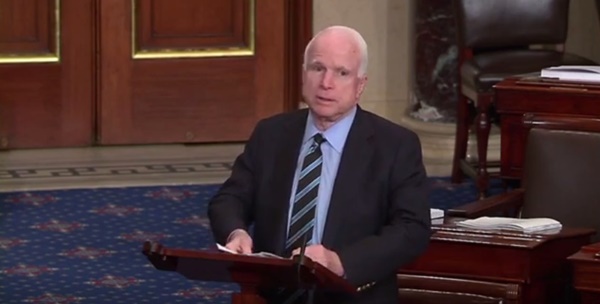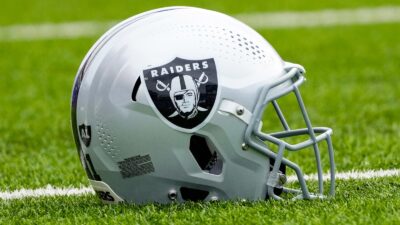
Senator John McCain died on Saturday at the age of 81 after succumbing to brain cancer. The longtime Arizona state senator was best known for running for president against Barack Obama in 2008 and for being a Vietnam War hero who survived despite being tortured as a P.O.W. McCain was also a big sports fan who had a profound impact on the sports world during his time in congress. That is the part of his legacy that we would like to explore.
During his political career, McCain had a big hand in the reformation of baseball, boxing, and the UFC, as well as other sports. Matching his conservative ideology, McCain often focused on more fairness and rules to protect athletes.
BASEBALL
McCain was one of the big reasons why MLB introduced a drug testing program that helped end the steroids era in the sport.
Even though the use of steroids was illegal in the country, MLB’s drug testing was extremely lax (just one test per year), with light penalties. That led to the game being overridden by steroids users for around a decade between the early 1990s to the early 2000s. In order to get the sport to clean up the drug use, McCain, acting in his role as Senate Commerce Committee Chairman, threatened federal legislation if MLB did not introduce a harsher drug policy.
“Major league baseball players and owners should meet immediately to enact the standards that apply to the minor leagues, and if they don’t, I will have to introduce legislation that says professional sports will have minimum standards for testing,” McCain said in Dec. 2004. “I’ll give them until January, and then I’ll introduce legislation.”
In 2006, MLB introduced its Joint Drug Prevention and Treatment Program. The program included more comprehensive testing as well as significantly harsher penalties to discourage cheating.
His big reason for pushing for harder drug testing?
“What I care about are high school athletes who are tempted to use steroids because they think that’s the only way they can make it in the major leagues,” McCain said in a 2004 ESPN article on the matter.
McCain also supported bills that pushed for Shoeless Joe Jackson to be inducted into the Baseball Hall of Fame and legislation to honor Jackie Robinson.
BOXING
McCain was a lightweight boxer and huge fan of the sport. He also worked hard to help improve the sport with regulations aimed at protecting fighters medically and from financial exploitation.
In 1996, his Professional Boxing Safety Act bill was passed. The bill mandated all boxing matches be supervised by a state athletic commission; fighters be physically tested before being medically cleared to fight; health insurance coverage for each fighter; and the presence of an ambulance and medical personnel at each fight.
As positive as those changes were, he made even more contributions later with the passing of the Muhammad Ali Boxing Reform Act. The Ali Act, which came into law in 2000, sought to prevent fighters from being exploited. The act mandated a separation between promoters and managers so that a fighter’s best interest would be represented. The act sought to end widespread corruption in the sport.
“If we can pass this legislation, there’s some hope,” McCain said in an ESPN article by Tim Graham before the legislation was passed. “I believe that boxers are the most exploited of all professional athletes. They come from the lowest economic rung, and they generally are the least educated, and they’re in the only major sport that’s not unionized.”
UFC
McCain was not a fan of the UFC, which he compared to “human cockfighting” back in 1997. He was one of the biggest enemies of the organization, which began without weight classes or rules, notoriously holding an “anything goes” attitude. McCain’s criticism and issues with the UFC led to it being pulled from pay-per-view and banned in every state around 20 years ago.
The UFC began to clean up the sport little by little, introducing rules and regulations, and seeking legalization state by state. In 2014, UFC owner Lorenzo Fertitta credited McCain’s toughness for helping the league gain legitimacy.
“I have to give him credit,” Fertitta said. “Without him doing what he did back in the ’90s to force regulation, this sport would be dead. It wouldn’t exist. Honestly, for all the negatives he caused, he actually allowed the sport to foster and grow.”
McCain’s influence on sports doesn’t end there. During his political career, he sought to ban gambling on college sports. More recently, he sought to end government spending on military recognition at sports events, which many thought were done out of patriotism rather than commercialism.
McCain was incredibly accomplished and worked hard to improve the sports world. His work in the sports arena has had a great effect and will continue to long after his death.













